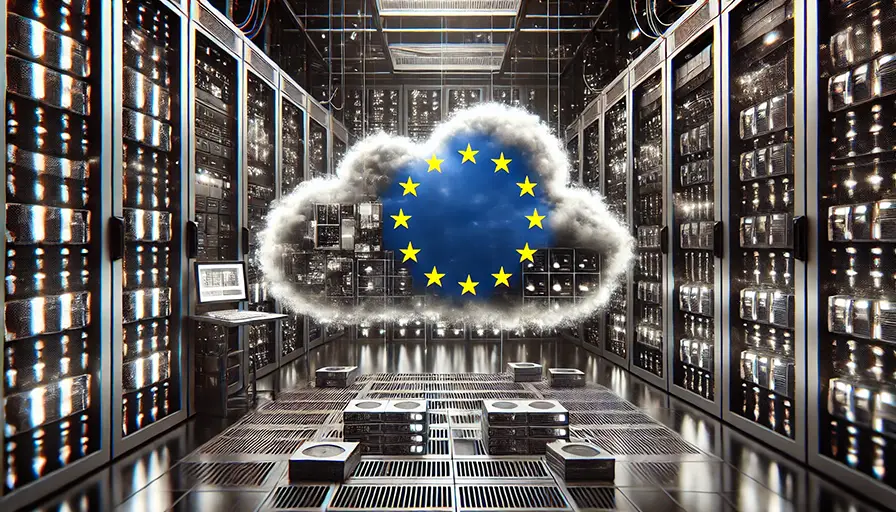Why Your Data Privacy Deserves Better
As concerns about data protection heighten across Europe, the French privacy watchdog, CNIL, recently brought attention to significant shortcomings in the EU’s proposed certification scheme for cloud services. This scheme aims to guarantee security against cyber threats, yet CNIL’s statement strikes a nerve by pointing out that existing safeguards are lacking. With the importance of privacy and data security top of mind, it becomes clear that essential steps must be taken before we can trust cloud services to shield our confidential information.
Revealed in this discussion:
- The EU Cloud Certification Crisis: Understanding the concerns raised by France’s CNIL.
- Risks of Inadequate Safeguards: Why we should be wary of current cloud service regulations.
- Legislative Delays: How these impact consumer protection across the EU.
- Protecting Your Data: Using tools like the Incognito Browser app to maintain your online privacy.
The EU’s cloud certification plan, known as EUCS, was designed to protect information technology (IT) packages sold within the European market from cyber threats. However, CNIL has asserted that as it currently stands, this scheme fails to adequately prove that providers can protect user data from foreign access. Given recent events, raising eyebrows at established tech giants operating within the bloc is no longer a mere theoretical exercise; it’s a pressing concern.
This situation becomes even more complicating when you consider the types of data at stake. The CNIL has rightfully emphasized that sensitive information—whether related to healthcare, criminal records, or children—should never be left vulnerable to unauthorized access. In a landscape where data breaches are more common than ever, you shouldn’t feel like your personal information is up for grabs. While regulatory measures are being developed at the EU level, changes could take years before they lead to actionable improvements.
Pushing for stronger safeguards is not just about governmental policy; it’s a personal imperative for all of us who utilize cloud services every day. We may entrust these platforms with everything from our private conversations to financial information, and it shouldn’t take scandal after scandal to acknowledge just how vital privacy really is. Watching these bureaucratic delays unfold reminds us of our own responsibilities when interacting with the internet.
If you’ve ever opened an incognito tab to browse freely online, you understand the basic principles of protecting one’s privacy. Utilizing incognito mode is a way of taking control over what remains visible and what stays hidden—a small yet significant step toward shielding yourself from prying eyes. Encouragingly, applications like the Incognito Browser extend that protective ethos even further.
When you think about it, using a standard web browser often means sacrificing a certain level of anonymity as your online activities can be tracked and attributed back to you. By opening an incognito browser, however, you’re entering a layer of online browsing dedicated to keeping your history and personal data untouched by advertisers or third-party entities. It’s a constantly relevant reminder that we have choices—choices that can offer us greater autonomy amid growing concerns over surveillance.
The implications of France’s concerns with cloud regulation go beyond geographical borders; they echo across nations and signal an urgent call for accountability and transparency in how digital services operate. As users become increasingly aware of how local regulations—or the lack thereof—play a crucial role in data handling practices, it becomes clear that incorporating additional layers of privacy protocols is essential.
Meanwhile, Europe’s struggle to finalize regulations underlines the necessity for individuals to consider what choices they’re making regarding their data every day. Rather than waiting for institutions or corporations to get it right, why not proactively take charge? With the growing recognition of threats posed by potential data misuse and inadequate safeguards, having dependable tools at our disposal serves as meaningful reinforcement of our personal privacy goals.
This isn’t just an issue for policymakers or tech corporations; it’s something everyone should think about seriously. By integrating tools like the Incognito Browser app into your daily digital routine, you can contribute meaningfully towards protecting your own data in a complicated world where many still push for better regulation but remain left in bureaucratic limbo.
With events unfolding around us, it becomes evident that while systems may evolve at their own pace, we each possess the power to influence our own privacy landscape today. Getting proactive about our online habits and utilizing technologies designed for privacy is not just smart—it’s necessary for ensuring your personal space remains autonomous and shielded from unnecessary eyes looking in.



